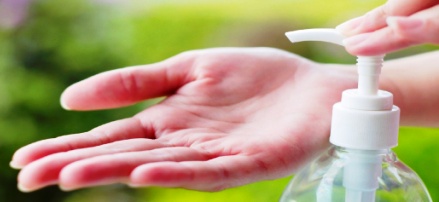
Staying fresh and clean throughout 2020 has been a tale of two halves according to new research from Mintel; while soap sales doubled, sales of deodorants continued to slump.
Lockdowns and social distancing have triggered a dramatic decline in deodorant usage as, according to Mintel research, almost three in 10 (28%) deodorant/antiperspirant users have applied them less frequently since the COVID-19 outbreak*. Frequency of usage has fallen most dramatically among Gen Z (aged 23 and under) and Millennial (aged 24-39) consumers. Just under half (45%) of Gen Zs and 40% of Millennials are using deodorant/antiperspirant less frequently, as the trend towards casualisation extends from clothing to personal hygiene.
Worry over the use of chemicals in deodorants is deterring usage amongst women, with 20% not using deodorant at all/more often due to concerns that wearing it is bad for their health. Overall, more than a third (35%) of deodorant users are interested in buying deodorants formulated with natural ingredients, while 34% are interested in deodorants with minimal/plastic-free packaging.
Already in decline, the outbreak of COVID-19 has exacerbated the downward trajectory of the market, with deodorant sales falling an estimated 7% in 2020 to £369 million, down from £394 million in 2019. Sales are forecast to decline a further 5% in 2021 to £352 million.
Emilia Greenslade, OTC and Personal Care Analyst at Mintel, said:
“Savvy shopping among Brits meant the deodorants market was already suffering even before the pandemic; however, lockdowns and social distancing exacerbated the value decline in 2020. The more relaxed approach towards personal grooming routines has been particularly noticeable among the young, which is likely a result of going out less. Consumers spending more time at home, and exercise routines split across the day, has meant it is easier to jump in the shower to wash, as opposed to using a deodorant.
“The likelihood of working from home becoming mainstream, and continued reduced social occasions, together with tighter budgets, will impact the market further. Spending on deodorants will remain low due to discounting and special offers, as well as the wide availability of well-known brands at discount retailers. With high interest in natural, plastic-free and refillable deodorants, well-known brands can build on their reputation and appeal to consumers to encourage usage.”
Soap sales double in 2020
While the deodorant market continues to suffer setbacks, sales of soap** doubled in 2020 as Brits splashed out £392 million on keeping their hands squeaky clean, up from £197 million in 2019. Hand sanitiser has proved to be an absolute essential during the pandemic, with usage rising to 73% in 2020, up from just 41% in 2018. What is more, eight in 10 (82%) hand sanitiser users are now using it more frequently.
But while overall usage of liquid soap (74%) and bar soap (50%) has remained static, the number of young Brits (aged 16-24) using bar soap has fallen dramatically – down from 46% in 2018 to 30% in 2020.
Emilia Greenslade, OTC and Personal Care Analyst at Mintel, said:
“The hand sanitiser/wash segment was fuelled in 2020 by premiumisation as new brands entered the market and the launch of bigger package sizes at higher price points in response to bulk-buying. However, with the vaccine rollout well underway, there is a risk that consumers will slip back into pre-pandemic routines.
“Young people have moved away from bar soap, likely due to hygiene concerns surrounding the build-up of bacteria. Despite this, three in 10 (27%) young soap buyers (aged 16-34) say they would be interested in switching product format to reduce their impact on the environment. Brands can appeal to consumers’ eco and hygiene concerns, for example, with single-use bar soaps or those that can be broken into pieces to avoid the perception of cross-contamination through shared usage.”


